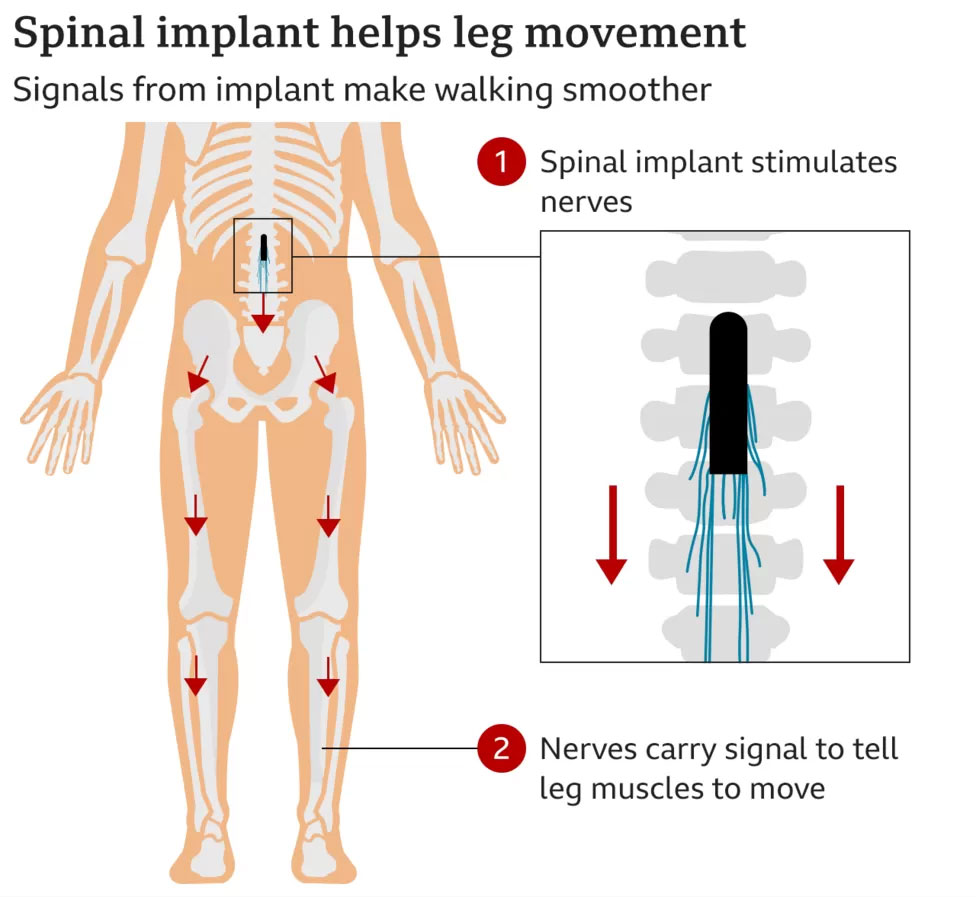Groundbreaking: Parkinson implant enables patient to walk for miles painlessly
Implant stimulates nerves in spine, allowing patients to walk, even in situations where they were housebound
November 06, 2023

A groundbreaking medical implant has restored the ability to walk in a man with advanced Parkinson's disease as Marc Gauthier, a 63-year-old from Bordeaux, France, became the first person to try out this innovative device, BBC reported.
It stimulates nerves in his spine, allowing him to walk, even in situations where he was previously housebound. The stimulator sits on the lumbar region of the spinal cord, sending electrical signals to the leg muscles, which, when combined with the brain's instructions, results in a more controlled and normal gait.

This implant represents a significant advancement in the treatment of Parkinson's disease. Before receiving the implant, Marc struggled with "freezing" and shuffling, common difficulties faced by Parkinson's patients. Now, he can walk for miles and navigate stairs with ease, thanks to the electrical stimulation provided by the implant.
Marc described the sensation as "a little tingling," and he doesn't find it bothersome. The device is wired to an impulse generator implanted under the skin of his abdomen, which powers the stimulator. After the surgical implantation, Marc underwent weeks of rehabilitation to program the device and fine-tune its operation.
The development is the result of a collaboration between several institutions, including the Swiss Federal Institute of Technology in Lausanne, the French National Institute of Health and Medical Research, and the University of Bordeaux.
Neurosurgeon Jocelyne Bloch, who performed the implantation, noted that the technology was similar to that used for some spinal injury patients but marks a first for Parkinson's disease.
The team will now test the device on six more Parkinson's patients with funding from the Michael J Fox Foundation. While the treatment is not a cure for Parkinson's, it offers hope for individuals with advanced Parkinson's whose current treatments are less effective.
The implant's potential to restore movement in those with advanced Parkinson's is an exciting development, although further research and testing are required before it becomes widely available.











